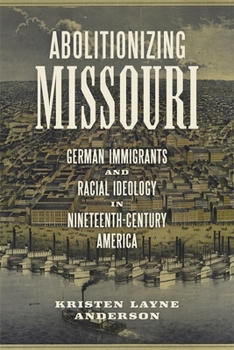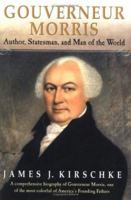Abolitionizing Missouri: German Immigrants and Racial Ideology in Nineteenth-Century America
(Part of the Antislavery, Abolition, and the Atlantic World Series and Antislavery, Abolition, and the Atlantic World Series)
Select Format
Select Condition 
Book Overview
Historians have long known that German immigrants provided much of the support for emancipation in southern Border States. Kristen Layne Anderson's Abolitionizing Missouri, however, is the first analysis of the reasons behind that opposition as well as the first exploration of the impact that the Civil War and emancipation had on German immigrants' ideas about race. Anderson focuses on the relationships between German immigrants and African Americans in St. Louis, Missouri, looking particularly at the ways in which German attitudes towards African Americans and the institution of slavery changed over time. Anderson suggests that although some German Americans deserved their reputation for racial egalitarianism, many others opposed slavery only when it served their own interests to do so. When slavery did not seem to affect their lives, they ignored it; once it began to threaten the stability of the country or their ability to get land, they opposed it. After slavery ended, most German immigrants accepted the American racial hierarchy enough to enjoy its benefits, and had little interest in helping tear it down, particularly when doing so angered their native-born white neighbors.
Anderson's work counters prevailing interpretations in immigration and ethnic history, where until recently, scholars largely accepted that German immigrants were solidly antislavery. Instead, she uncovers a spectrum of Germans' antislavery positions and explores the array of individual motives driving such diverse responses.. In the end, Anderson demonstrates that Missouri Germans were more willing to undermine the racial hierarchy by questioning slavery than were most white Missourians, although after emancipation, many of them showed little interest in continuing to demolish the hierarchy that benefited them by fighting for black rights.
Related Subjects
Addiction & Recovery Biographical Biographies Biographies & History Biography & History Cooking Drug Dependency Eating Disorders Health, Fitness & Dieting Health, Fitness & Dieting Memoirs Nutrition Politics & Social Sciences Self Help Self-Help Self-Help & Psychology Social Sciences Teen & Young Adult Weight Loss




















